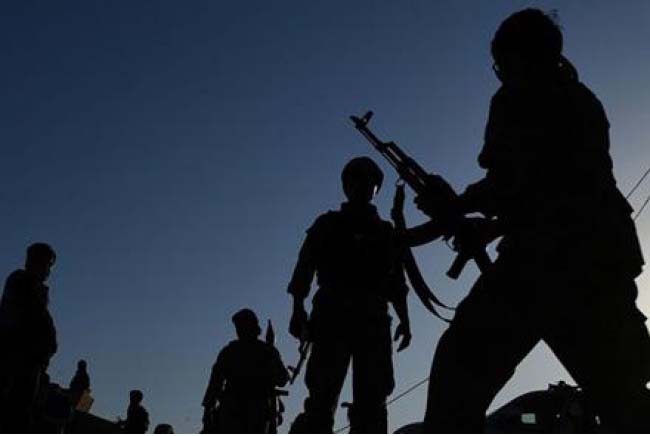The terrorist networks, and Mullah Mansour’s death, stigmatized Islamabad and widened the Afghan-Pak rift last year as the US and Afghan officials stated that the Taliban had a safe haven across the border. The crux of dispute emerged when Afghan President, Ashraf Ghani refused Pakistan’s $500m financial aid at the Heart of Asia Conference, in the northern India city of Amritsar, and spoke in a serious tone about terrorist sanctuaries which aggravated the mistrust. The Taliban elements orchestrated deadly attacks against the National Unity Government (NUG) and Afghan soldiers and civilians sustained large fatalities. The attacks on Afghan’s military convoy on June 30, 2016 and on peaceful demonstrators in Kabul on July 23, 2016 left heavy casualties behind.
The warring factions continue their insurgency both in Afghanistan and Pakistan. On Saturday, a bomb went off in Parachinar, Pakistan’s northwestern tribal area, killing at least 22 people and wounding 50 others. Over the past few years, Parachinar has been the scene of heavy sectarian violence. In a nutshell, both Afghan and Pakistan nations suffer militancy and constantly fall victims to terrorism. The militants, mainly the self-styled Islamic State (IS) group which has gained foothold in Pak-Afghan’s soil, seek to stoke sectarianism through shedding the blood of people on the grounds of their race and religion.
Last year, Afghan soldiers fought deadly battles against the Taliban insurgents and inflicted heavy casualties upon the fighters. As a result, Gen John Nicholson, the commander of US and NATO troops in Afghanistan, said earlier that the Afghan national security forces were tested in 2016 and they prevailed. “It was an important year for us. We began the year with a peace process. The Taliban and others admitted to joining the quadrilateral peace process,” he is cited as saying. Four or five meetings were held, where Pakistani leaders promised to deliver, he recalled, saying the Taliban declared all of a sudden in April to launch an offensive against the Afghan government. After a series of suicide attacks hit Kabul and other parts of the country, the Afghan government and security forces had to get down to business and then went hard after the Taliban. Nicholson said the Afghanistan-Pakistan region had the highest concentration of terrorist groups in the world. As many as 22 terrorist groups operated there. Similarly, the US State Department spokesperson Mark Toner said that problem regarding the safe havens of the terrorist groups in Pakistan still persists.
Perhaps, Islamabad seeks to usher in building trust in the current year to bridge the yawning gap. It is said that Pakistan’s Chief of Army Staff General Qamar Javed Bajwa will make a trip to Kabul in the right time to amend the fractured ties. It is believed that cultivating a friendly relation, with the intention of brining peace, will be a high step towards stabilization. It is hoped that Pakistan will use its “leverage” to bring the Taliban to negotiating table and also both the countries will have to combat terrorism more strongly than ever before so as to reduce casualties and protect the rights of the two nations.
In the current year, the Taliban must not be let repeat their heavy offensives against any nations and their sanctuaries are to be eradicated where they are located. The seminaries which are changed into the hotbed of terrorism and radical mindsets should be eradicated – be it in Pakistan or Afghanistan. After all, the Taliban’s high-ranking officials are not supposed to continue their terrorist activities freely. Since the Taliban are engaged in violating human rights and humanitarian law, they must stand on trial or else be doomed to Mansour’s destiny.
Resuming peace talks, on which Pakistan persists, is reinventing the wheel since it has been proved abortive within almost a decade. The Taliban chose side years ago and have clear message: war, war and war. Their foul play in the negotiating game is beyond doubt. Therefore, they carry out deadly attacks against civilians and soldiers without an iota of hesitation. Both Kabul and Islamabad are to define the Taliban clearly and adopt a clear strategy towards them without any differences. The reason, many analysts and experts insist on military action is that what if worse comes to worst by pushing the militants to hold talks. There is no option other than dealing with the insurgents militarily. That is to say, there is no bona fide intention for peace among the Taliban and the two countries should take an across-the-board share in counter-insurgency.
Needless to say, a backroom deal with the Taliban will arouse a sense of mistrust between Afghan-Pak officials. Since the two countries have common enemies, it would strengthen their ties to decide unanimously whether to hold talks, in case of being considered positive, or intensify military attacks. The question is that will Afghan and Pakistani nations sustain casualties the same as they did within the two last years? If yes, it would be a bitter pill for both the countries to swallow. The officials are responsible to protect the rights and liberty of their nations in one way or another – it would be possible through centralizing on appropriate strategies rather than pointing the finger at each other.
Home » Opinion » Who Carries the Ball?
Who Carries the Ball?
| Hujjatullah Zia

